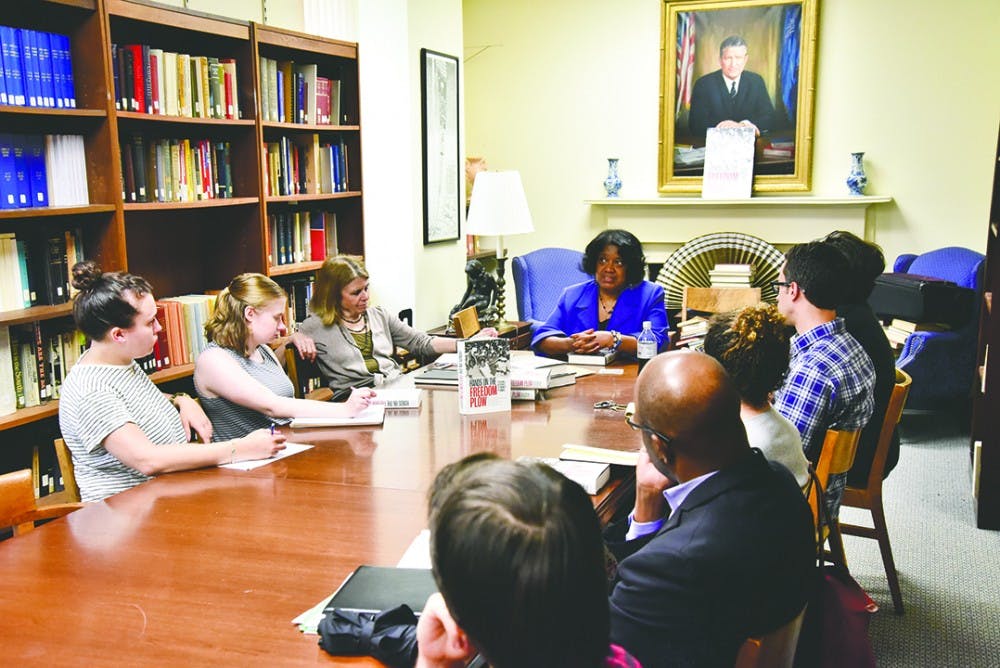USC’s History Center opened a discussion on the civil rights movement with two public talks from Martha Noonan, a prominent female African-American civil rights activist, on Tuesday and Wednesday.
Noonan gave a talk entitled “Three Myths of the Civil Rights Movement” on Tuesday night and discussed the book “Hands on the Freedom Plow: Personal Accounts by Women in SNCC,” which she edited, on Wednesday afternoon.
Patricia Sullivan, a professor of history at USC, effusively praised Noonan’s work on the civil rights movement.
“Martha Noonan has done as much or more than anyone to recover, document and illuminate the dynamic history of one of the most transformative social movements in American history,” Sullivan said.
The book was comprised entirely of personal accounts from women of all races who worked for the Student Nonviolent Coordinating Committee, an organization that played a key role in organizing Freedom Rides and marches during the movement.
Noonan, who worked as field secretary for the SNCC while she was attending the University of Michigan, spoke about the involvement of women in the organization and the portrayal of women in the movement throughout her discussion.
“I’ve tried to emphasize, in the bridges and in the book, the number of situations where women, in small ways and big ways, determined the course, the nature and the direction of the movement,” Noonan said.
Noonan also examined the unique role that African-American women had in the protests compared to African-American men.
“It was slightly easier for the women to step forward. While the reprisals were horrible for the women, they would have been worse for men,” Noonan said.
Noonan’s goal for the visit was to talk about the civil rights movement, share her experience and give students explicit first-hand accounts of the challenges that members of the SNCC faced and the resilience that they displayed.
“Everybody [in the SNCC] had to make this fundamental decision: Am I willing to die?” Noonan said.
Several history PhD students attended Noonan’s talks. Sarah Paulsen, a first-year history PhD student, talked about the uniqueness of getting to meet and converse with Noonan.
“Women, especially African-American women, are left out of the traditional civil rights narrative, and it’s a special opportunity to talk with someone who’s been a part of it, but also get to speak about a book that addresses multiple women who have been left out of the conversation,” Paulsen said.
Noonan left a final word of advice for current college students: “The thing that we did then, as college students, was to say, basically, ‘What can we do about this, and how can we do it?’ And then we acted on that. I think that’s the question for students today.”

